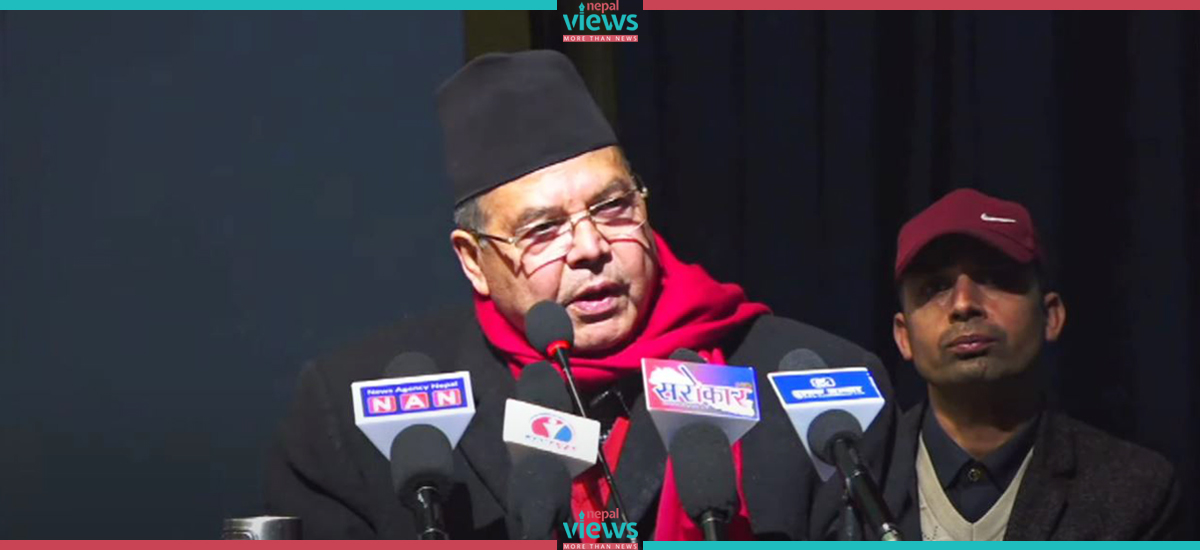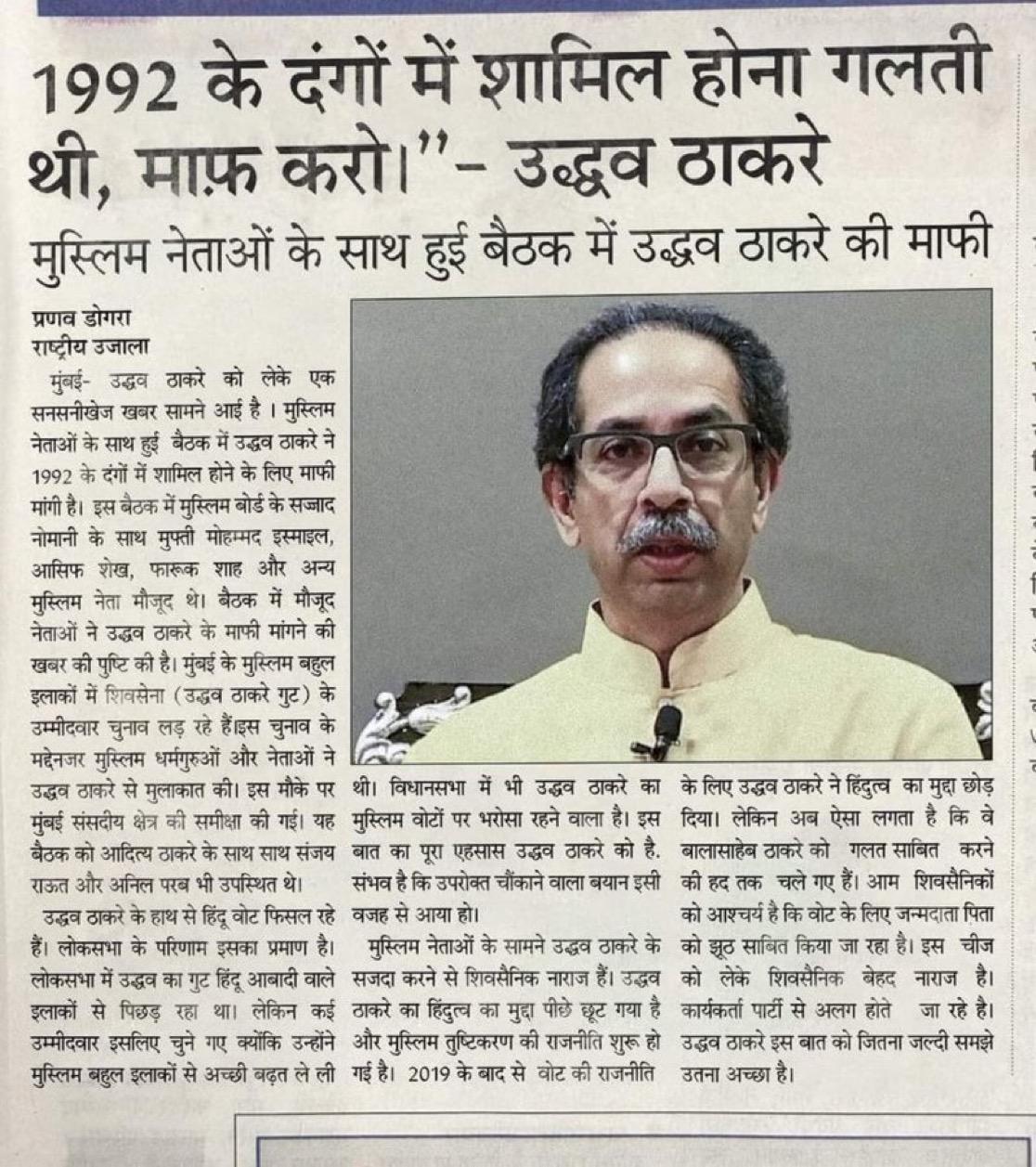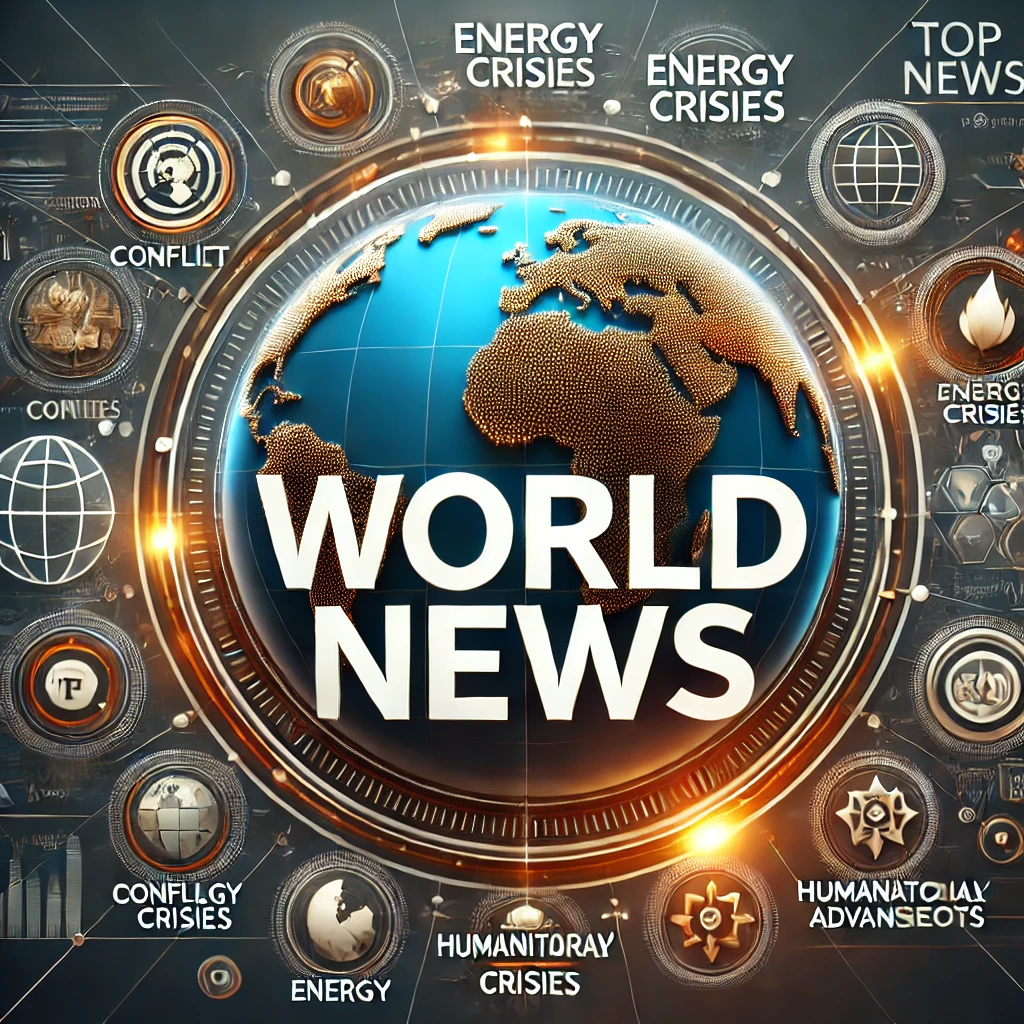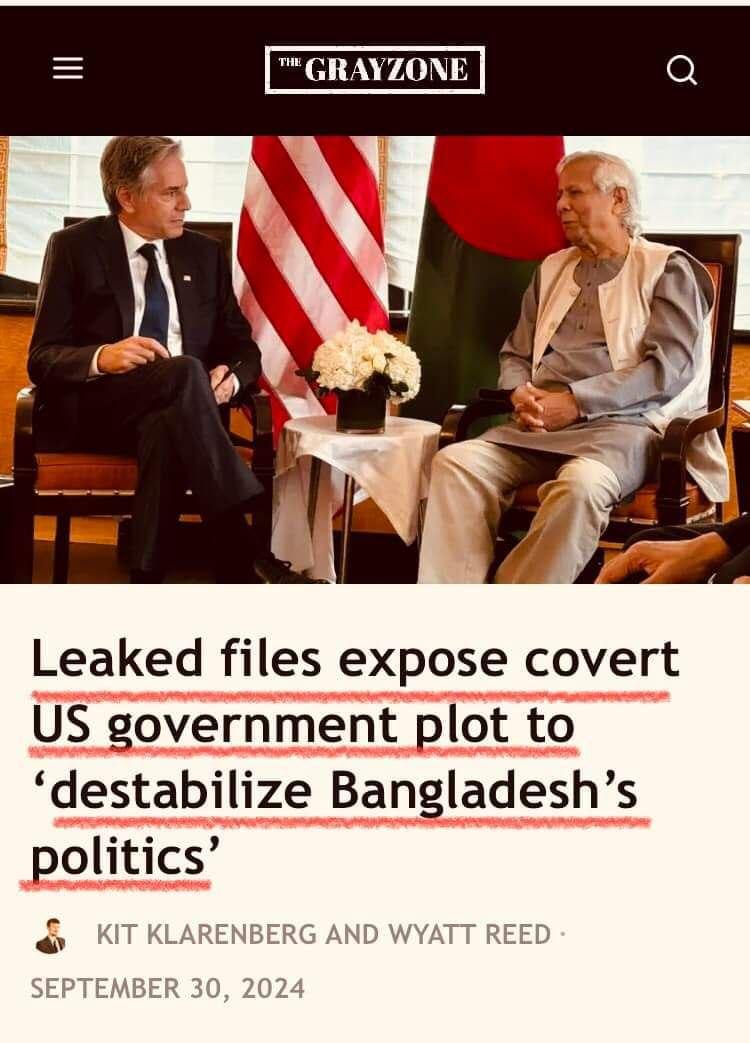World News Headlines - October 27, 2024
1. Entire Population of Northern Gaza at Risk, Warns UN
The UN has raised alarms over the deteriorating humanitarian situation in northern Gaza, where the entire population is at risk of dying due to escalating violence. International agencies call for an immediate ceasefire.
Source: UN News
2. UN Chief Urges Immediate Halt to Israeli Strikes on Iran
UN Secretary-General António Guterres has urged for a halt to the escalating strikes between Israel and Iran after Israeli airstrikes targeted key facilities in Iran, raising fears of regional conflict.
Source: UN News
3. Drought or Flooding? Indigenous Communities Turn to Climate-Resilient Crops
In South America, Indigenous communities affected by climate change are turning to resilient crops like beans to withstand droughts and flooding, offering hope for survival.
Source: Inter Press Service
4. COP16: Biodiversity Credits Emerge as Controversial Solution
At COP16 in Colombia, discussions on biodiversity credits have ignited both hope and protests as stakeholders debate the best methods to finance global environmental conservation efforts.
Source: Inter Press Service
5. Press Freedom in Sri Lanka Still a Distant Dream
Newly elected Sri Lankan President Anura Kumara Dissanayake pledges to address unsolved journalist murders, marking the start of an attempt to end a culture of impunity regarding press freedom.
Source: Inter Press Service
6. IMF Criticized for Lack of Support to African Nations
The IMF is facing criticism for failing to provide substantial financial aid to African countries struggling with economic crises, as leaders call for increased use of special drawing rights to boost recovery.
Source: Global Issues
7. Israel Intensifies Strikes in Gaza, Ignoring International Calls for Ceasefire
Despite global pleas for restraint, Israeli airstrikes continue to hit northern Gaza, deepening the humanitarian crisis as thousands of civilians are displaced.
Source: UN News
8. Media Literacy Declines as AI Fuels the Spread of Disinformation
As AI and social media fuel rapid dissemination of news, global experts warn of declining media literacy, especially concerning misinformation around food production and climate change.
Source: Inter Press Service
9. Russian Invasion of Ukraine Continues Despite International Condemnation
In a meeting with Russian President Vladimir Putin, UN Secretary-General António Guterres reaffirmed that Russia's invasion of Ukraine is a violation of international law.
Source: UN News
10. Rising Gang Violence Plunges Haiti Into Chaos
Haiti's worsening gang violence and political instability have led to an escalating humanitarian crisis, with food insecurity affecting millions.
Source: Global Issues
11. South Korea Unveils Breakthroughs in AI and Robotics
At its latest technology expo, South Korea showcases its advancements in artificial intelligence and robotics, solidifying its position as a leader in tech innovation.
Source: Financial Times
12. Mexican Cartels Extend Influence Across Central America
Mexico's drug cartels continue to expand their influence throughout Central America, leading to increased violence and political instability across the region.
Source: BBC
13. Saudi Arabia Expands Renewable Energy Portfolio
As part of its Vision 2030 plan, Saudi Arabia has launched a series of new renewable energy projects, aiming to reduce its reliance on oil and diversify its economy.
Source: Bloomberg
14. Japan's Population Decline Deepens Economic Concerns
Japan's birth rate has reached record lows, further exacerbating concerns over its rapidly aging population and long-term economic sustainability.
Source: BBC
15. UN Calls for Immediate Action to Alleviate Yemen's Food Crisis
The United Nations has called for urgent international assistance to address the severe food crisis in Yemen, where millions face extreme hunger due to ongoing conflict.
Source: UN News
16. Europe Faces Energy Shortages Amid Russian Gas Disruptions
Europe is grappling with energy shortages as disruptions in Russian gas supplies continue, forcing nations to explore alternative energy sources.
Source: BBC
17. Africa's Climate Crisis Sparks Urgent Calls for Action
At the latest climate summit, African leaders called for increased global attention to the continent's vulnerabilities to climate change, particularly in drought-affected regions.
Source: Global Issues
18. North Korean Troops Allegedly Training in Russia
Reports indicate that North Korean troops are being trained in Russia, sparking concerns about deepening military ties between the two nations.
Source: Wall Street Journal
Here are some potential biases and areas on the above news where particular viewpoints could be highlighted:
1. Middle East (Gaza and Israel)
Narrative Bias: The news on Gaza focuses heavily on the humanitarian crisis, portraying the situation as dire with significant emphasis on Israel's military actions. There is a consistent international outcry calling for a ceasefire, which is typical in media coverage that leans toward humanitarian advocacy. However, this coverage might lack emphasis on the reasoning or provocations from both sides (such as Hamas' role), which could lead to a one-sided depiction of the conflict.
Potential Bias: The portrayal may appear biased if it does not equally weigh the perspectives of Israeli security concerns or Hamas’ role in escalating tensions, instead focusing primarily on Israel’s military actions and humanitarian consequences in Gaza.
2. UN Involvement in Israel-Iran Conflict
Political Bias: There is a strong call from the UN Secretary-General for an immediate halt to Israeli strikes on Iran. While the news underscores the global stance against conflict escalation, the narrative may underplay the broader geopolitical complexities between Israel and Iran, particularly the latter’s nuclear ambitions and threats toward Israel, which may justify Israel’s preemptive actions from its security perspective.
Potential Bias: By focusing primarily on the UN’s condemnation, the article might not reflect the Israeli viewpoint on why they carried out the strikes, potentially leading to a perceived bias.
3. IMF Criticism for Lack of Support to Africa
Economic Bias: The article suggests the IMF is under pressure to provide more financial aid to African countries, reflecting a critical stance towards the IMF. The focus on Africa’s need for economic relief could be seen as bias toward more aid without a nuanced analysis of the IMF’s limitations or the governance issues within African countries that may impede effective use of funds.
Potential Bias: The emphasis is largely on external support without delving into the internal factors (such as corruption, governance) that may contribute to Africa’s ongoing economic struggles.
4. Russia-Ukraine War
Geopolitical Bias: The article reiterates the UN's strong condemnation of Russia's invasion of Ukraine. This narrative aligns with international law and humanitarian principles, but some might argue that it underrepresents Russia’s perspective, such as claims of defending ethnic Russians or resisting NATO's eastward expansion.
Potential Bias: Most global coverage of this war supports Ukraine’s sovereignty and condemns Russia, which may be perceived as biased against Russia, even though it aligns with most global institutions’ stance.
5. North Korean Troops Training in Russia
Geopolitical Suspicion: This news piece highlights the deepening military ties between North Korea and Russia, which could stoke fear or suspicion of these nations' collaboration. However, the narrative might overlook internal motivations of both countries, focusing instead on external fear or threat perceptions.
Potential Bias: The coverage may reflect bias towards amplifying Western concerns about military alliances without offering a detailed perspective on why North Korea and Russia are collaborating.
6. Indigenous Communities and Climate Resilience
Positive Bias: The story on Indigenous communities adopting climate-resilient crops is framed positively, celebrating their efforts to adapt to climate change. This reflects a constructive narrative, but the broader structural issues contributing to their vulnerabilities (e.g., lack of government support) might be underrepresented.
Potential Bias: The article could be seen as overly optimistic, potentially downplaying systemic issues faced by Indigenous populations.
Conclusion:
The world news analyzed above generally presents events from the perspective of global institutions like the UN and humanitarian organizations, emphasizing crises, condemnations, and calls for aid. The potential biases lie in the framing of narratives that may overlook the perspectives of the parties being criticized, such as Israel's security concerns or Russia's justification for its invasion of Ukraine. These biases align with common global media tendencies to highlight humanitarian crises and international diplomacy while possibly underplaying the more complex motivations of nations involved in conflicts.
#WorldNews #GazaCrisis #UNChief #IsraelIranStrikes #SouthKoreaAI #MexicanCartels #RussiaUkraineWar #SaudiRenewables #JapanPopulationCrisis #YemenFoodCrisis #EuropeEnergyCrisis #ClimateSummit #NorthKoreaRussia #IMFAfrica #SriLankaPressFreedom #IndigenousResilience #BiodiversityCOP16 #HumanitarianCrisisWorld News Headlines - October 27, 2024
1. Entire Population of Northern Gaza at Risk, Warns UN
The UN has raised alarms over the deteriorating humanitarian situation in northern Gaza, where the entire population is at risk of dying due to escalating violence. International agencies call for an immediate ceasefire.
Source: UN News
2. UN Chief Urges Immediate Halt to Israeli Strikes on Iran
UN Secretary-General António Guterres has urged for a halt to the escalating strikes between Israel and Iran after Israeli airstrikes targeted key facilities in Iran, raising fears of regional conflict.
Source: UN News
3. Drought or Flooding? Indigenous Communities Turn to Climate-Resilient Crops
In South America, Indigenous communities affected by climate change are turning to resilient crops like beans to withstand droughts and flooding, offering hope for survival.
Source: Inter Press Service
4. COP16: Biodiversity Credits Emerge as Controversial Solution
At COP16 in Colombia, discussions on biodiversity credits have ignited both hope and protests as stakeholders debate the best methods to finance global environmental conservation efforts.
Source: Inter Press Service
5. Press Freedom in Sri Lanka Still a Distant Dream
Newly elected Sri Lankan President Anura Kumara Dissanayake pledges to address unsolved journalist murders, marking the start of an attempt to end a culture of impunity regarding press freedom.
Source: Inter Press Service
6. IMF Criticized for Lack of Support to African Nations
The IMF is facing criticism for failing to provide substantial financial aid to African countries struggling with economic crises, as leaders call for increased use of special drawing rights to boost recovery.
Source: Global Issues
7. Israel Intensifies Strikes in Gaza, Ignoring International Calls for Ceasefire
Despite global pleas for restraint, Israeli airstrikes continue to hit northern Gaza, deepening the humanitarian crisis as thousands of civilians are displaced.
Source: UN News
8. Media Literacy Declines as AI Fuels the Spread of Disinformation
As AI and social media fuel rapid dissemination of news, global experts warn of declining media literacy, especially concerning misinformation around food production and climate change.
Source: Inter Press Service
9. Russian Invasion of Ukraine Continues Despite International Condemnation
In a meeting with Russian President Vladimir Putin, UN Secretary-General António Guterres reaffirmed that Russia's invasion of Ukraine is a violation of international law.
Source: UN News
10. Rising Gang Violence Plunges Haiti Into Chaos
Haiti's worsening gang violence and political instability have led to an escalating humanitarian crisis, with food insecurity affecting millions.
Source: Global Issues
11. South Korea Unveils Breakthroughs in AI and Robotics
At its latest technology expo, South Korea showcases its advancements in artificial intelligence and robotics, solidifying its position as a leader in tech innovation.
Source: Financial Times
12. Mexican Cartels Extend Influence Across Central America
Mexico's drug cartels continue to expand their influence throughout Central America, leading to increased violence and political instability across the region.
Source: BBC
13. Saudi Arabia Expands Renewable Energy Portfolio
As part of its Vision 2030 plan, Saudi Arabia has launched a series of new renewable energy projects, aiming to reduce its reliance on oil and diversify its economy.
Source: Bloomberg
14. Japan's Population Decline Deepens Economic Concerns
Japan's birth rate has reached record lows, further exacerbating concerns over its rapidly aging population and long-term economic sustainability.
Source: BBC
15. UN Calls for Immediate Action to Alleviate Yemen's Food Crisis
The United Nations has called for urgent international assistance to address the severe food crisis in Yemen, where millions face extreme hunger due to ongoing conflict.
Source: UN News
16. Europe Faces Energy Shortages Amid Russian Gas Disruptions
Europe is grappling with energy shortages as disruptions in Russian gas supplies continue, forcing nations to explore alternative energy sources.
Source: BBC
17. Africa's Climate Crisis Sparks Urgent Calls for Action
At the latest climate summit, African leaders called for increased global attention to the continent's vulnerabilities to climate change, particularly in drought-affected regions.
Source: Global Issues
18. North Korean Troops Allegedly Training in Russia
Reports indicate that North Korean troops are being trained in Russia, sparking concerns about deepening military ties between the two nations.
Source: Wall Street Journal
Here are some potential biases and areas on the above news where particular viewpoints could be highlighted:
1. Middle East (Gaza and Israel)
Narrative Bias: The news on Gaza focuses heavily on the humanitarian crisis, portraying the situation as dire with significant emphasis on Israel's military actions. There is a consistent international outcry calling for a ceasefire, which is typical in media coverage that leans toward humanitarian advocacy. However, this coverage might lack emphasis on the reasoning or provocations from both sides (such as Hamas' role), which could lead to a one-sided depiction of the conflict.
Potential Bias: The portrayal may appear biased if it does not equally weigh the perspectives of Israeli security concerns or Hamas’ role in escalating tensions, instead focusing primarily on Israel’s military actions and humanitarian consequences in Gaza.
2. UN Involvement in Israel-Iran Conflict
Political Bias: There is a strong call from the UN Secretary-General for an immediate halt to Israeli strikes on Iran. While the news underscores the global stance against conflict escalation, the narrative may underplay the broader geopolitical complexities between Israel and Iran, particularly the latter’s nuclear ambitions and threats toward Israel, which may justify Israel’s preemptive actions from its security perspective.
Potential Bias: By focusing primarily on the UN’s condemnation, the article might not reflect the Israeli viewpoint on why they carried out the strikes, potentially leading to a perceived bias.
3. IMF Criticism for Lack of Support to Africa
Economic Bias: The article suggests the IMF is under pressure to provide more financial aid to African countries, reflecting a critical stance towards the IMF. The focus on Africa’s need for economic relief could be seen as bias toward more aid without a nuanced analysis of the IMF’s limitations or the governance issues within African countries that may impede effective use of funds.
Potential Bias: The emphasis is largely on external support without delving into the internal factors (such as corruption, governance) that may contribute to Africa’s ongoing economic struggles.
4. Russia-Ukraine War
Geopolitical Bias: The article reiterates the UN's strong condemnation of Russia's invasion of Ukraine. This narrative aligns with international law and humanitarian principles, but some might argue that it underrepresents Russia’s perspective, such as claims of defending ethnic Russians or resisting NATO's eastward expansion.
Potential Bias: Most global coverage of this war supports Ukraine’s sovereignty and condemns Russia, which may be perceived as biased against Russia, even though it aligns with most global institutions’ stance.
5. North Korean Troops Training in Russia
Geopolitical Suspicion: This news piece highlights the deepening military ties between North Korea and Russia, which could stoke fear or suspicion of these nations' collaboration. However, the narrative might overlook internal motivations of both countries, focusing instead on external fear or threat perceptions.
Potential Bias: The coverage may reflect bias towards amplifying Western concerns about military alliances without offering a detailed perspective on why North Korea and Russia are collaborating.
6. Indigenous Communities and Climate Resilience
Positive Bias: The story on Indigenous communities adopting climate-resilient crops is framed positively, celebrating their efforts to adapt to climate change. This reflects a constructive narrative, but the broader structural issues contributing to their vulnerabilities (e.g., lack of government support) might be underrepresented.
Potential Bias: The article could be seen as overly optimistic, potentially downplaying systemic issues faced by Indigenous populations.
Conclusion:
The world news analyzed above generally presents events from the perspective of global institutions like the UN and humanitarian organizations, emphasizing crises, condemnations, and calls for aid. The potential biases lie in the framing of narratives that may overlook the perspectives of the parties being criticized, such as Israel's security concerns or Russia's justification for its invasion of Ukraine. These biases align with common global media tendencies to highlight humanitarian crises and international diplomacy while possibly underplaying the more complex motivations of nations involved in conflicts.
#WorldNews #GazaCrisis #UNChief #IsraelIranStrikes #SouthKoreaAI #MexicanCartels #RussiaUkraineWar #SaudiRenewables #JapanPopulationCrisis #YemenFoodCrisis #EuropeEnergyCrisis #ClimateSummit #NorthKoreaRussia #IMFAfrica #SriLankaPressFreedom #IndigenousResilience #BiodiversityCOP16 #HumanitarianCrisis









